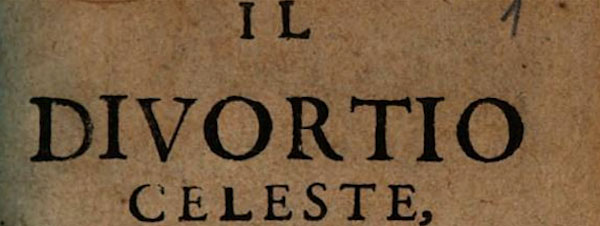Ferrante Pallavicino, “Ville-franche,” 1643 (Google Books)
Lister read another of Pallavicino’s satiric works in May 1665. Edward Muir indicated that this work, originally published in Italian as Il Divortio celeste, “came to be known, in the words of a contemporary, as ‘superior to all others in impiety and blasphemies against the Roman Church’”. 1
Pallavicino was a member of the Accademi degli Incogniti (Academy of the Unknowns) founded in Venice in 1630 by students of Cesare Cremonini. Because this group ‘openly espoused religious skepticism and libertine morality’, it was typical of their members to preserve their anonymity by writing under pseudonyms; Il Divortio celeste was written under the pen name of Spironcini.2
Pallavicino’s satire portrayed Jesus seeking out God to announce his desire to divorce his bride, the Roman Church, due to her vice and adulteries. To corroborate Jesus’s claims, God sent St. Paul down to earth to visit Rome; Paul returned so scandalized that he recommended that Jesus’s request be granted.

